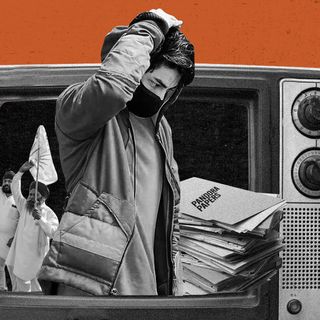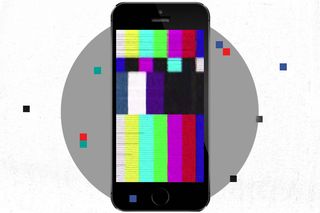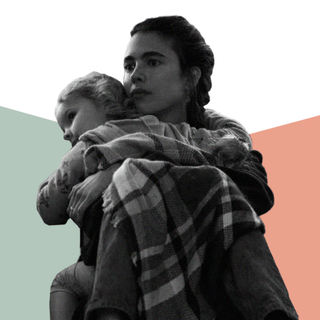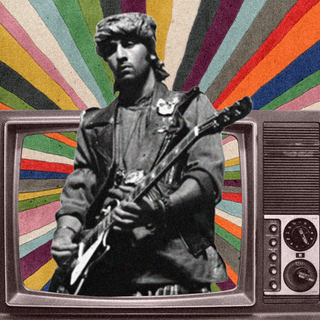
Why the Social Media Blackout Felt Like the Apocalypse
Facebook suite’s shutdown has revived calls to regulate big tech in light of the catastrophic impact its unavailability has on daily life.

Two hours into the Great Social Media Blackout of 2021, a Twitter user posted a question: “If WhatsApp isn’t back by tomorrow, is it a holiday?”
The Facebook suite in the wee hours of Monday collapsed like a house of cards. The “connecting…” sign on WhatsApp or the blank verse of Instagram disrupted a calibrated, well-functioning digital life. Some described it as an “apocalypse,” some took this time to self-reflect. Others congregated on the last legs of social media — Twitter, TikTok, and Reddit — to share the absurdity of this experience.
And it was, by all means, overwhelming and absurd. This feeling of existing out of space, out of time comes with an ominous implication. Life stopped because digital space and time stopped. This puts into perspective the personal and collective cost of constantly being tethered to the social network.
On an individual level, we live, breathe, talk on social media. In an ideal world, Instagram and WhatsApp would be like accessories to daily living and extension of oneself. But in “this” world, they are like utilities — like a car that takes you to work or lets you meet people. No wonder people likened the feeling last night to one when the electricity goes out; families check on neighbors to see if the outage is shared, and are obligated to sit in a room together and take stock of life. Equating social media with a utility is no small thing. Water, electricity, transport — they are tangible products of a world linked to a running civilization. To think Instagram joins this list is part fascinating, part morbid.
A social media shutdown had the ability to halt lives and work. Here’s a meme that joined the digital chuckle yesterday: “Influencers realizing they built an entire career on a platform that can be eradicated in a click.” The joke is sobering. “Today’s outage brought our reliance on Facebook — and its properties like WhatsApp and Instagram — into sharp relief,” Brooke Erin Duffy, a professor of communications at Cornell University, told The New York Times. “The abruptness of today’s outage highlights the staggering level of precarity that structures our increasingly digitally-mediated work economy.” For influencers, it’s almost like losing access to your workspace, work products, and whole life, really.
Here’s a terrifying idea:
The loss of work also means the discovery of leisure. Social media in that way mimics the physical world, existing as a wheel of capitalism, of productivity, of emotional output. A break from checking WhatsApp or Instagram also meant some found merit in stopping and smelling the roses. The response was similar to being in nature, at peace, and introspecting life’s great mysteries. Some even picked up a book on their list — such was the distorted sense of time.
In 1991, social psychologist Kenneth Gergen warned of “multiphrenia” in his book The Saturated Self. He described an Orwellian world where technology would overwhelm people to the extent it would fragment our identities; a self pulled in multiple directions that the individual would be lost. “I am linked, therefore I am,” he quipped, referring to Descartes’s, “I think, therefore I am.” The bitter truth may be the emergence of a “self” that is as authentic as the physical self.
As writer Sherry Thomas wrote in INSIGHT: “The long-term psychological impact of social media on individuals and their individual sense of ‘self’ remains to be seen… they are unleashing a myriad of complex psychological issues that have altered our collective sense of reality.”
If anything, last night’s adventures revealed the extent of our digital lives. This explains why we felt the need to make light of the situation, inundate the remaining parts of the internet with jokes and memes. But while some laughed about the internet black hole, some called it a veritable crisis.
Related on The Swaddle:
The Internet Is an Emotional Outlet for Many — But Is Crying Into the Void Helping People Heal?
Arguably, social media platforms are more than just shiny things; they are places for communication, for carrying out occupations. In parts of the world, Facebook and its accompanying platforms are quite literally synonymous with the internet. “More than 3.5 billion people around the world use Facebook, Instagram, Messenger, and WhatsApp to communicate with friends and family, distribute political messaging, and expand their businesses through advertising and outreach,” the New York Times noted. In areas with limited cell services and/or limited data packs for sending text messages, Facebook falling from the internet’s map also meant people fell through the cracks too.
“Facebook has… subsidized their data plans, they have subsidized their phones to get people in incredibly fragile places in the world onto the platform,” Rest of the World noted, explaining the necessity of free and open internet in societies. The extent of our digital realities includes something as fundamental as calling a loved one to check on them.
What’s more discouraging, then, is to be dependent on a company that is under scrutiny for its ethical impact on governance. Facebook is indubitably having a bad week, with a whistleblower calling out the company’s preference for profits over the public good. The social media outage rattled many digital rights activists and journalists who demanded more government regulation. “It really sucks that we need the products of companies like Facebook that are led by people who are amoral at best, and seem immoral most days, so we can’t fully root against them while they exploit us. That’s why we need to regulate, break down, and treating as a utility,” journalist Abraham Gutman wrote on Twitter.
I’m tempted to liken Facebook, WhatsApp, Instagram, and Oculus to the four horsemen of the apocalypse. The end of a world untethered to nothing. When I woke up in the morning to see WhatsApp restored, I knew it was time to go back to the “real” world. Whatever that means.
Saumya Kalia is an Associate Editor at The Swaddle. Her journalism and writing explore issues of social justice, digital sub-cultures, media ecosystem, literature, and memory as they cut across socio-cultural periods. You can reach her at @Saumya_Kalia.
Related


How ‘Maid’ Helps Understand Violence Without Blood and Bruises
